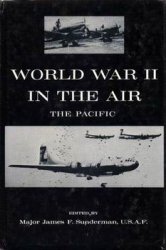Trotsky's reputation was further damaged by the issue of the New Economic Policy. Soon after taking power Lenin had implemented a policy known as 'War Communism'. This was a series of harshly restrictive economic measures intended to help the Bolsheviks win the civil war of 1918-20. These measures:
• brought agriculture and industry under central control
• used government requisition squads to seize grain stocks from the peasants
• prohibited farming for profit.
However, War Communism did not produce the expected results. The interference with the peasants' traditional ways caused disruption and resentment. Hunger did not lessen; it intensified. Despite the government's terror tactics there were many instances of serious resistance. Always flexible in his approach, Lenin decided on a U-turn. He judged that, if the peasants could not be forced, they must be persuaded. At a Party Congress in 1921 he told members that it made no sense for Bolsheviks to pretend that they could pursue an economic policy which took no account of the real situation. He then announced that War Communism was to be replaced with a New Economic Policy, the main features of which were:
• central economic control to be relaxed
• grain requisitioning to be abandoned
• the peasants to be allowed to keep their food surpluses and sell them for a profit.
NEP clearly marked a retreat from the principle of state control of the economy.
It restored a mixed economy in which certain features of capitalism existed alongside socialism. It was this that troubled the members of the Party, including Trotsky, who had welcomed the repressive measures of War Communism. To their mind, squeezing the peasants was exactly what the Bolsheviks should be doing since it advanced the revolution. It disturbed them that the peasants were being cosseted and that capitalist ways were being tolerated.
Leftists and rightists
When introducing NEP in 1921, Lenin had admitted that it was a relaxing of strict socialism, but had emphasized that it was a temporary measure.
However, at the time of his death in 1924 the question was already being asked as to how long in fact NEP was meant to last. The Party members who were unhappy with it saw its continuation as a betrayal of revolutionary principles. A serious division had developed in the Party between leftists and rightists. Initially the disagreement was simply about timing: how long was the NEP to continue? However, in the power struggle of the 1920s these minor differences deepened into questions of political correctness and Party loyalty. A rival's attitude towards the NEP might be a weakness to be exploited.
Stalin did precisely this. He used Trotsky's attitude towards NEP as a way of undermining him. Trotsky, in 1923, had openly declared that to continue with NEP was to put the interests of the Nepmen above those of the Revolution and to undermine the gains made from War Communism. Stalin was quick to suggest to Party members that Trotsky was an unacceptably disruptive force. The interesting point here is that Stalin's own view of NEP was far from clear at this stage. He had loyally supported Lenin's introduction of it in 1921, but had given little indication as to whether, or how long, it should be retained after Lenin's death. He preferred to keep his own views to himself and play on the differences among party members.




 World History
World History









